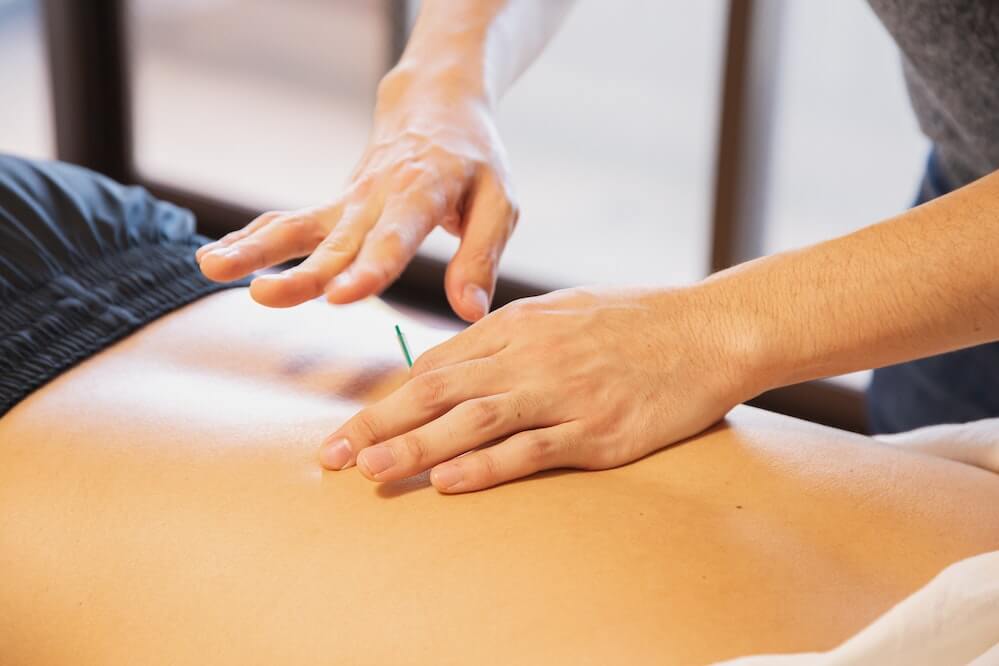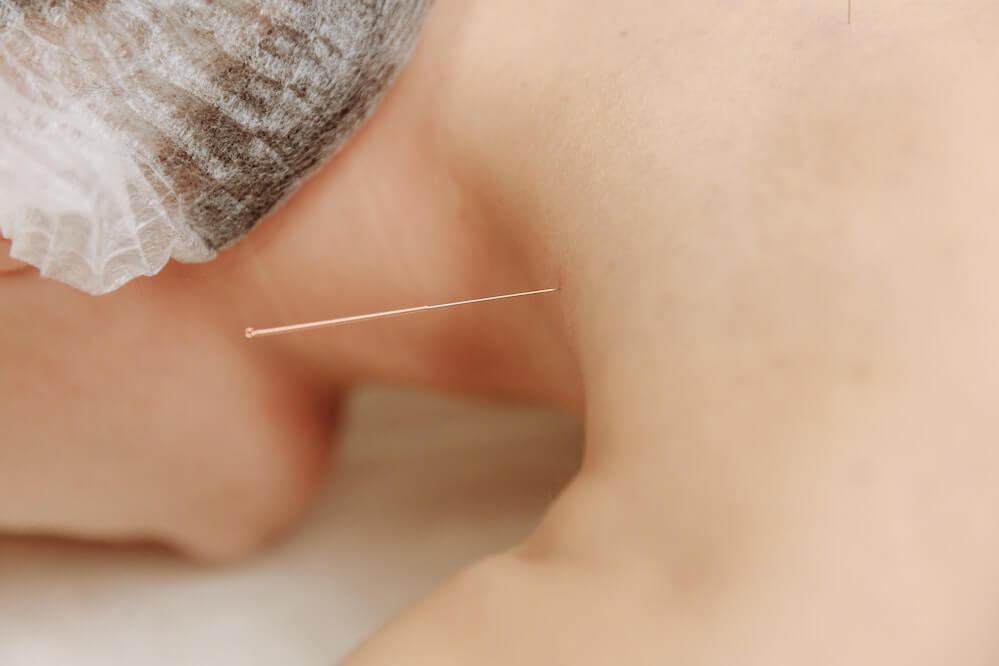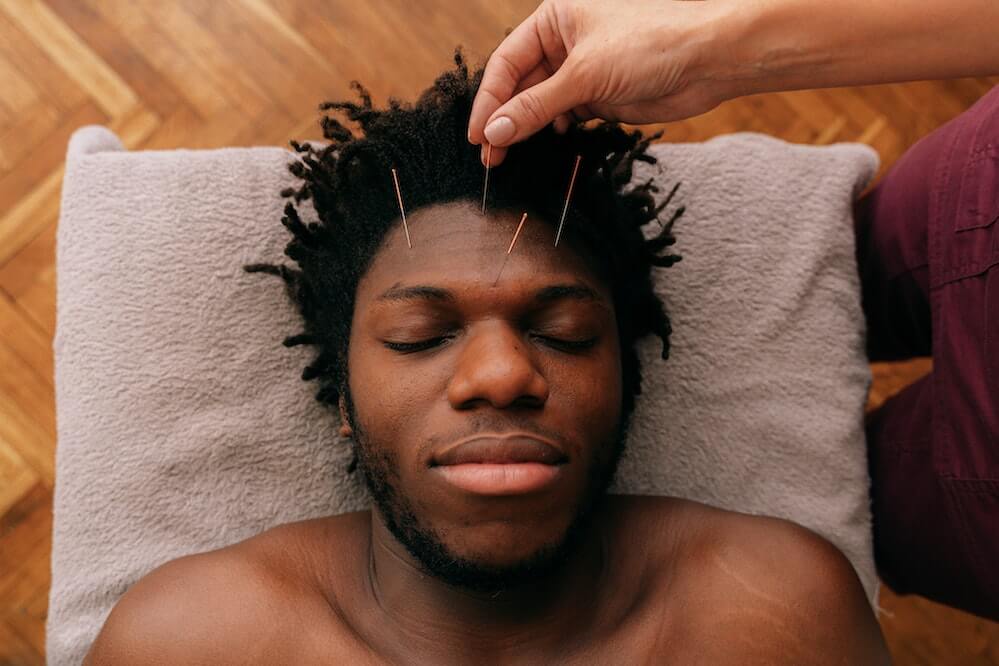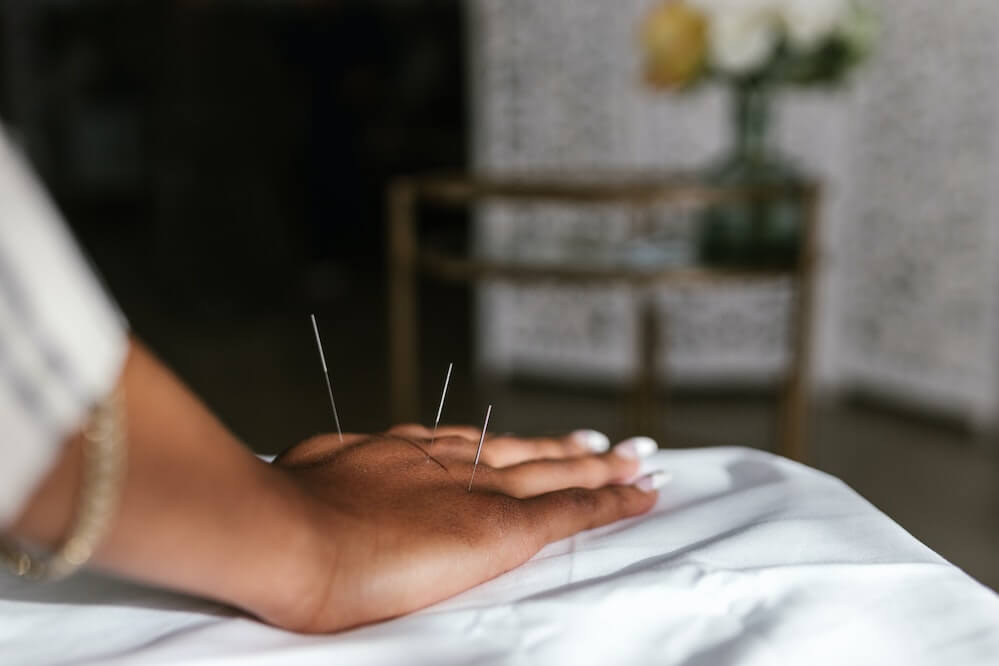Anxiety can be detrimental to the quality of life as it causes feelings of unease, fear, worry, restlessness, irritability, headaches, stomach aches, and muscle pains. There are many ways to treat anxiety, such as cognitive behavioral therapy, exposure therapy, medication, support groups, mindfulness, breathing techniques, etc. Another treatment you can use as an alternative or complementary treatment for anxiety is acupuncture.
If you’re experiencing anxiety and want to explore alternative medicine treatments, such as acupuncture for stress and anxiety, read on to find out more about how acupuncture can help with anxiety, what some of the benefits of acupuncture for anxiety are, how long it takes to have an effect on anxiety, and much more.
Can Acupuncture Help With Anxiety?

Based on Traditional Chinese Medicine (TCM), anxiety involves excess energy in the body or qi, which can create heat related to insomnia, a fast heart rate, feeling on edge, restlessness, overthinking, and worrying. Through acupuncture, acupuncturists can ensure the free flow of qi, thus relieving anxiety symptoms.
During the acupuncture session, the acupuncturist will insert thread-like needles in specific nerve points in the body, stimulating a sensory nerve and triggering a response from the brain to release hormones that will bring healing and calm.
It can help relieve anxiety symptoms by:
– Increasing levels of serotonin and dopamine, the happy hormones
– Promoting relaxation and calming the mind
– Releasing endorphins or the feel-good hormone
– Controlling the release of cortisol, which is a stress hormone
Acupuncture is a safe treatment as it has minimal potential side effects, which can include mild bruising, minor bleeding at the point of the needle, lightheadedness, soreness, fatigue, headache, and pain during the session.
What Are the Benefits?

While we need more studies to explore how acupuncture can help with anxiety, a study about the effectiveness of acupuncture on anxiety disorder has found that acupuncture can be beneficial for people with general anxiety disorder.
Other indirect benefits of acupuncture for anxiety include the following:
– Increased energy: Because acupuncture helps increase blood flow and flush waste, many people experience increased energy after an acupuncture session.
– Reduced chronic pain: If chronic pain adds to your anxiety, acupuncture can help relieve pain and anxiety.
– Accessibility: Because it has little to no side effects, people with various ailments and undergoing other treatments can use acupuncture for anxiety.
– Feeling relaxed: Because acupuncture stimulates the nervous system to release endorphins, it increases feelings of relaxation and relief.
– Alternative to psychiatric medication: Because acupuncture helps with anxiety, acupuncture is an excellent safe alternative for people who don’t want to take drugs for it or haven’t had a satisfying experience with it.
– Fast relief: Many people can start seeing improvements in their overall wellness and anxiety after a few sessions.
How Long Does Acupuncture Take to Have an Effect on Anxiety?
Unfortunately, we can’t give a specific answer as every person will respond differently to acupuncture, so the result of the treatment and the number of sessions varies from person to person. Nevertheless, acupuncture for anxiety shows immediate results for many from the first or second session. It would help if you also tried identifying the lifestyle factors that trigger anxiety and reducing your exposure combined with acupuncture to see better results.
Acupuncture Points for Anxiety

There are hundreds of acupuncture points in the body that can help treat various conditions and manage pain. Targeting these specific acupoints can help patients relax, improve their well-being and stimulate the body’s natural healing process. According to TCM, some of the acupuncture points for anxiety are:
– Bauhui (GV 20): Also known as Mountain Top, this acupoint can be found at the highest point of the head, and it can help with calming the spirit, emotions, memory, anxiety, sleep disorders, brain fog, stress, headaches, etc.
– Yintang (EXHN3): Located between the eyebrows, this is a calming point, and it can help with headaches, anxiety, and insomnia, reduce stress, and relax the sympathetic nervous system.
– Shenmen (HT7): Or Heart 7, is an acupoint found at the wrist crease that can help with anxiety, insomnia, poor memory, irritability, etc.
– Hegu (LI4): Located between the base of the thumb and the index finger, this acupoint can reduce anxiety and depression symptoms and help improve mood.
– Governing Vessel (GV24): Also called Shen Ting, it is an acupoint situated in the middle of the forehead about half an inch into the hairline. It can help with anxiety, panic attacks, manic depression, epilepsy, fear, and dizziness.
– Pericardium 6 (PC6): Found about three fingers up from the wrist crease, this acupoint can help with anxiety, emotional problems, palpitations, insomnia, irritability, tightness in the chest, and nausea.
– Liver 3 (LR3): This acupoint located on the top of the foot in the hollow between the first and second toes can ease anger, frustration, resentment, anxiety, and depression.
How Much Does Acupuncture for Anxiety Cost?

The price of acupuncture can vary between clinics and locations. At our Holistic Wellness Center in Columbus, Ohio, we aim to offer affordable acupuncture, medical massage therapy, and Chinese herbal therapy services.
The price for professional acupuncture on the first visit is $95, and for the return visits $80.
As one of the key objectives of our programs is to provide students with clinical experience, we also offer a student intern program where you can get our wellness services at a lower price. The price for intern acupuncture on the first visit is $50, and for the return visits is $45. You can also get an intern acupuncture package of 7 return acupuncture intern visits for $269.99.
Complementing Acupuncture With Therapy
In addition to acupuncture, engaging in therapy can profoundly enhance anxiety management. Traditional therapy provides critical psychological insights and coping strategies essential for long-term wellness. For added convenience and accessibility, virtual therapy platforms also offer the flexibility to receive support wherever you are, ensuring that your treatment plan fits seamlessly into your daily routine.
Conclusion
Anxiety can be overwhelming and take a toll on a person’s physical and mental health. However, it responds well to various treatments (therapy, medication, alternative medicine), which you can utilize to your advantage. You can also make changes in your routine, like getting lots of sleep, exercising, and eating foods rich in magnesium and zinc (leafy greens, nuts, whole grains, cashews, liver, and egg yolks).
Adding acupuncture as a complementary treatment to your routine can help immensely to treat short-term or long-term anxiety. Check out our Holistic Wellness Center and book an appointment to receive a treatment plan tailored to your needs, relieve anxiety, and reestablish balance in your body!